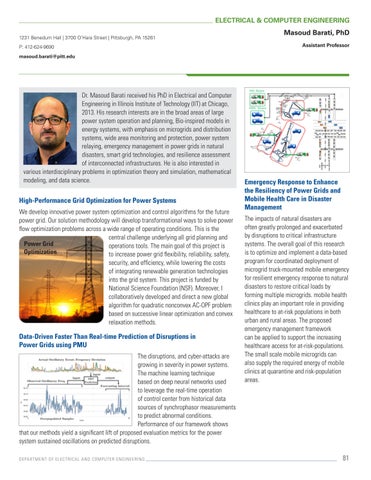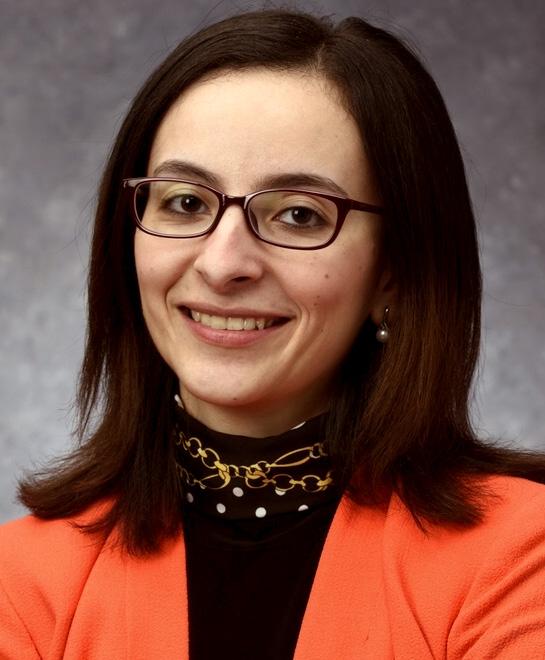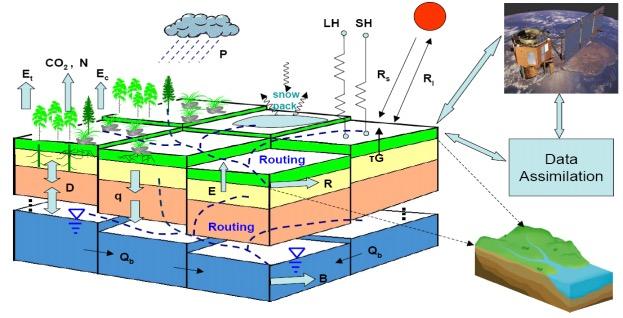ELECTRICAL & COMPUTER ENGINEERING 1231 Benedum Hall | 3700 O’Hara Street | Pittsburgh, PA 15261 P: 412-624-9690
Masoud Barati, PhD Assistant Professor
masoud.barati@pitt.edu
Dr. Masoud Barati received his PhD in Electrical and Computer Engineering in Illinois Institute of Technology (IIT) at Chicago, 2013. His research interests are in the broad areas of large power system operation and planning, Bio-inspired models in energy systems, with emphasis on microgrids and distribution systems, wide area monitoring and protection, power system relaying, emergency management in power grids in natural disasters, smart grid technologies, and resilience assessment of interconnected infrastructures. He is also interested in various interdisciplinary problems in optimization theory and simulation, mathematical modeling, and data science.
High-Performance Grid Optimization for Power Systems We develop innovative power system optimization and control algorithms for the future power grid. Our solution methodology will develop transformational ways to solve power flow optimization problems across a wide range of operating conditions. This is the central challenge underlying all grid planning and Power Grid operations tools. The main goal of this project is Optimization to increase power grid flexibility, reliability, safety, security, and efficiency, while lowering the costs of integrating renewable generation technologies into the grid system. This project is funded by National Science Foundation (NSF). Moreover, I collaboratively developed and direct a new global algorithm for quadratic nonconvex AC-OPF problem based on successive linear optimization and convex relaxation methods.
Data-Driven Faster Than Real-time Prediction of Disruptions in Power Grids using PMU The disruptions, and cyber-attacks are growing in severity in power systems. The machine learning technique based on deep neural networks used to leverage the real-time operation of control center from historical data sources of synchrophasor measurements to predict abnormal conditions. Performance of our framework shows that our methods yield a significant lift of proposed evaluation metrics for the power system sustained oscillations on predicted disruptions. DEPARTMENT OF ELECTRICAL AND COMPUTER ENGINEERING
Emergency Response to Enhance the Resiliency of Power Grids and Mobile Health Care in Disaster Management The impacts of natural disasters are often greatly prolonged and exacerbated by disruptions to critical infrastructure systems. The overall goal of this research is to optimize and implement a data-based program for coordinated deployment of microgrid truck-mounted mobile emergency for resilient emergency response to natural disasters to restore critical loads by forming multiple microgrids. mobile health clinics play an important role in providing healthcare to at-risk populations in both urban and rural areas. The proposed emergency management framework can be applied to support the increasing healthcare access for at-risk-populations. The small scale mobile microgrids can also supply the required energy of mobile clinics at quarantine and risk-population areas.
81





























































































